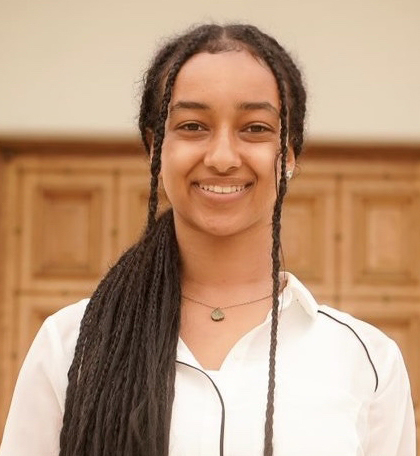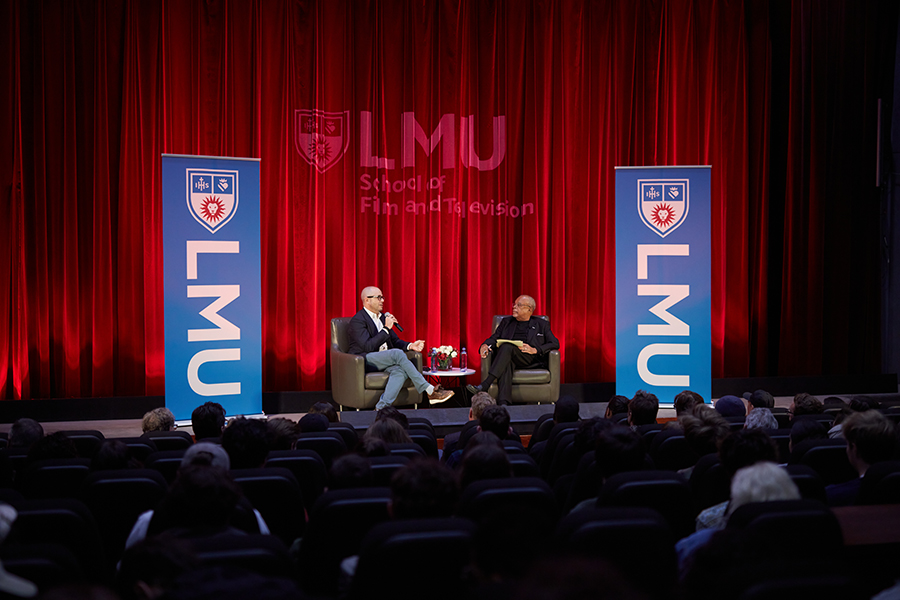
Loyola Marymount University’s Mayer Theater was filled with laughs, cheers, and newfound inspiration on Jan. 18. 2023, when Emmy and Peabody Award-winning filmmaker, literary scholar, and professor Henry Louis Gates, Jr. and acclaimed screenwriter and producer Damon Lindelof spoke with students from LMU School of Film and Television about discovering family history and storytelling.
As part of LMU’s Global Conversations Series, Gates aired an episode from his ground-breaking PBS TV series, “Finding Your Roots”, highlighting the life journeys of Lindelof and actor, director, and producer Regina King. In the episode, Lindelof and King were introduced to parts of their family tree that they were never aware of. Lindelof and King worked together on the award-winning “Watchmen” limited HBO series. Gates made a guest appearance in “Watchmen” as a fictional U.S. Treasury Secretary and government spokesperson for reparations for the Black Wall Street Massacre, a nod to his genealogy work.
Lindelof describes himself as “a born writer, although it would take over 25 years to figure that out.” He initially attended NYU film school intending to become a director, but discovered he was a much better writer than director. In 2004 he partnered with J.J. Abrams to create “Lost,” the popular series that ran for six seasons on ABC. Since then, he has worked as a writer and producer on “Star Trek,” “Prometheus,” “World War Z,” and “Tomorrowland.” Returning to TV in 2014, Lindelof spent three seasons showrunning HBO’s critically-acclaimed “The Leftovers,” which he fiercely defends as “not as depressing as everyone says.” He followed that with “Watchmen,” which he fiercely defends As “not as confusing as everyone says.” Up next for him will be the series “Mrs. Davis,” which he describes as an epic battle of biblical and binary proportions That will debut on Peacock this April.
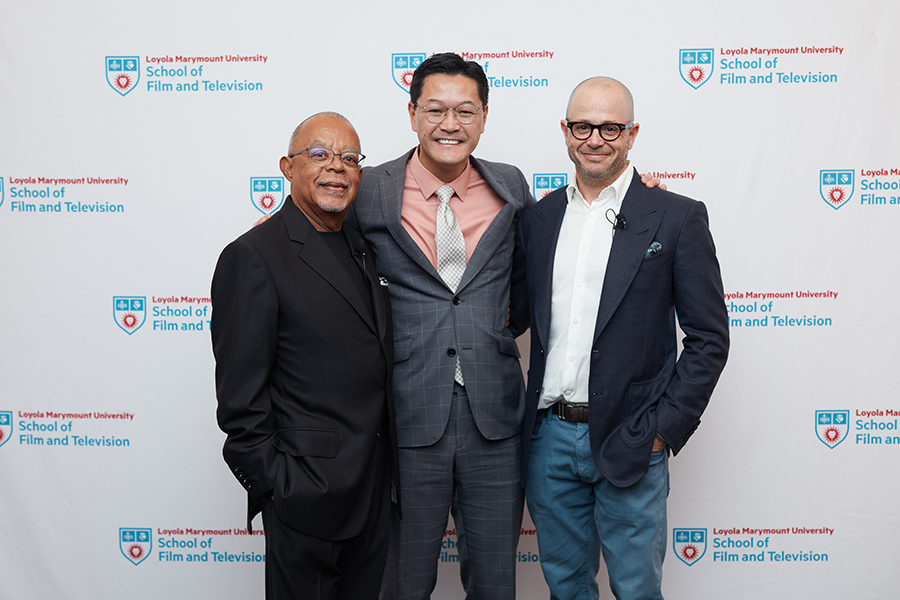
Lindelof, a three-time Emmy-award winner, fascinated the crowd with his touching story of being a New Jersey native who has always embraced his Jewish culture with accompanying traditions, such as bar mitzvahs.“I did not think about my identity much when I was young,” Lindelof said to the crowd. “I was functioning on a superficial level before finding my roots on the show.”
“Everything that I knew about myself started with my parents, both of whom didn’t really want to talk about their parents, which left me living in the present time,” Lindelof said.
During the screening, the audience watched Lindelof learn about his great uncle and family who were murdered in the Holocaust. Also included in the episode was King’s history, the discovery of her absent family members, and how slavery has seeped through her family tree.
“Your trauma is relativistic to you,” a vulnerable Lindelof shared. “My great uncle and his family’s murder is a bit of a ‘phew’ moment, because it’s kind of like ‘it wasn’t my grandparent’ or ‘I don’t have a direct relation to a survivor.’ Then I watched Regina’s side of the story, and I’m sort of like, ‘oh OK, her great-great-great grandfather was a name in a slave owner’s will.’ That’s incomparable to the experience I’ve had.” Lindelof said that his understanding of trauma has deepened after the genealogy experience, and that trauma is inherited, it cannot be avoided.
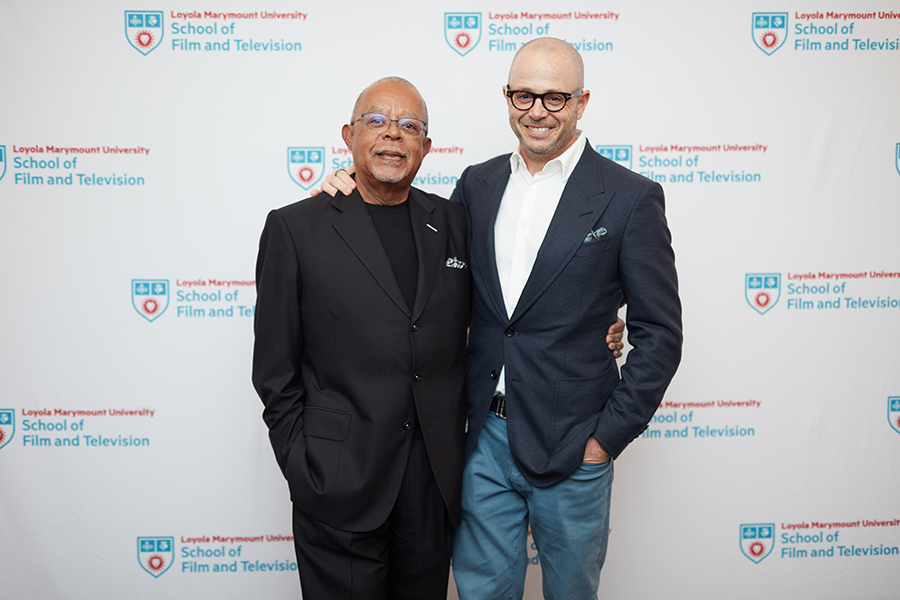
Although the discussion with Lindelof and Gates was quite emotional, the two were able to keep the crowd entertained; discussing Lindelof’s success with “Watchmen” and “Lost,” Gates finally letting Lindelof meet him for the first time to get cocktails, and Lindelof giving students his own pieces of wisdom as a creative artist.
Lindelof said “Lost” was so exciting to make because it “felt like it was out of control.” They made 25 episodes over the course of 10 months, but they didn’t have much of a plan; they just went along with it after each episode was completed. Lindelof said “Lost” didn’t have that title because it was about people on an island who wouldn’t be rescued anytime soon, but because they’re “lost spiritually and emotionally.” The strangers on the plane were a metaphor for humanity, and how people need to rely on one another, come to grips with the sins of your past and ask for forgiveness.
Ending the night on an uplifting note, Gates asked Lindelof about his journey through film school and the important things he did during those crucial years to gain success. “Be really good at what you are good at. It’s not a sacrifice to say, ‘I’m giving up this other part of me,’” Lindelof said. “The world will tell you. Your good friends won’t tell you. You will know when it’s working and when it’s not working.” Lindelof’s greatest attribute? Simple: being patient and present during all the ups and downs. “Out-patient and out-hustle everyone else.”
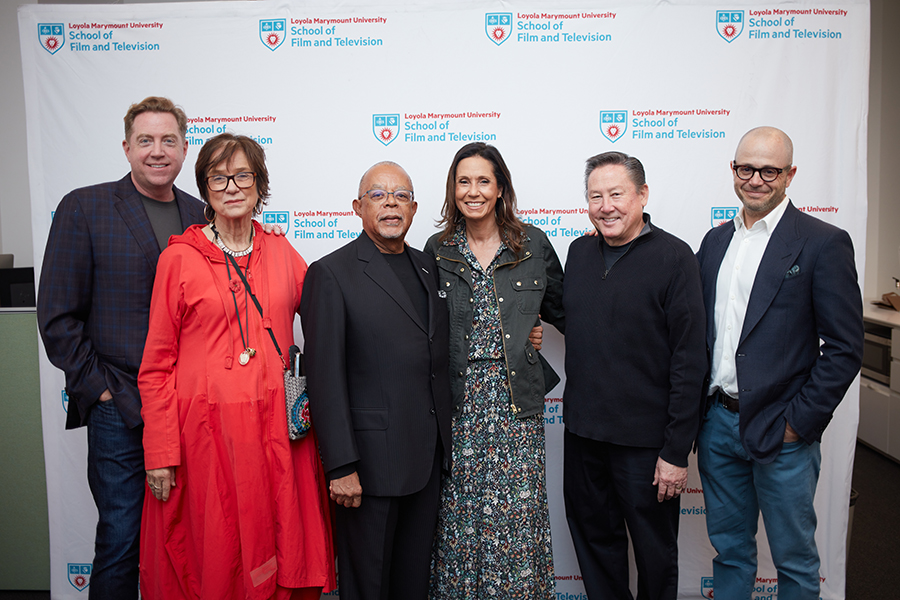
Event Organized by:
The Marymount Institute for Faith, Culture, and the Arts and LMU School of Film and Television
About the Marymount Institute for Faith, Culture, and the Arts:
The Marymount Institute for Faith, Culture, and the Arts preserves the transformative educational tradition of the Religious of the Sacred Heart of Mary and promotes dialogue between faith and culture as expressed in the fine, performing, literary, and communication arts.
About the School of Film and Television:
LMU School of Film and Television is consistently ranked among the best film schools in the world, and has been named one of the top 10 film schools in the U.S. by the Hollywood Reporter. Our small class sizes, cutting-edge facilities and innovative, student-centered curriculum provide unique opportunities for students to hone their technical and creative skills as they prepare to become the next generation of storytellers, scholars and industry leaders.



